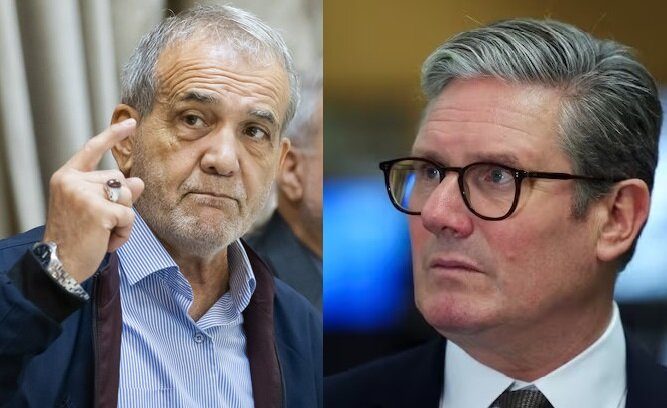The Transfer of Executive Power in Iran and an Opportunity for Change
The Pezeshkian administration, thanks to complete coordination and comprehensive adherence to the desires of the top leadership, has officially begun its work with the parliamentary approval of all proposed ministers.
Even the previous administration and the regime’s preferred president in 2021, for whom the ruling structure made every effort to elect, and several of the most important and experienced figures of the Islamic Republic were disqualified and discredited in the process of bringing him to the presidency, did not achieve such success and did not pass with a full cabinet through the parliamentary approval of the Islamic Consultative Assembly. The electoral confrontations and Masoud Pezeshkian’s clear stances against the specific ideas and thoughts of the ruling structure and his resistance against certain forces and figures have been forgotten.
Pezeshkian explicitly defended his cabinet in the parliament as one not only approved by the top leadership but practically determined and formed with the leader’s opinion. Such statements from a head of government are unprecedented in the history of the Islamic Republic. Naturally, such an approach will lead to the disillusionment of a significant part of the society. A president who is merely a facilitator and not only lacks the authority to appoint his ministers but seemingly does not want this authority, has many opportunities to gain the people’s trust, but we Iranians have become accustomed to losing such opportunities by elected governments. A simple step towards change and gaining trust can be taken at the very beginning. Hastily and crudely copying trends and approaches from other countries has never been beneficial, while utilizing the experiences of democratic governments is always valuable.
The transfer of executive power in various countries sometimes occurs with a democratic approach and based on transparency, and one of the best examples is British politics. Keir Starmer, the British Prime Minister, stepped into Downing Street exactly during the days of Pezeshkian’s election.
Based on a common and usual tradition that has become completely normal, a clear narrative and image of the country’s situation was presented by the new British ministers, and some of the existing issues and problems that had received less attention were reported to the people.
For example, Britain was facing a crisis of overcrowded prisons and full capacity.
Providing a clear image in this regard led to the proper follow-up of changes in prisons and the creation of space for new convicts after the occurrence of extremist racist riots and the arrest of a group of rioters.
Another example, perhaps the most important, was the transparent narrative of the country’s financial and budgetary situation, which, by showing tangible and real shortages, reduced expectations from the government for new investments and the granting of fresh concessions and credits.
Naturally, the first reaction of opponents is to accuse the new government of blackening the picture and making excuses for future inefficiencies and problems, and this is the point: people see the problems and issues and expect clarity and transparency from the government and politicians.
If the new government fears narrating the situation it has inherited and silences itself, there will be no basis or foundation for boasting about future achievements. The Pezeshkian administration must start by providing a clear picture of the current state of the country.
The caliber of the ministers in this cabinet, which perhaps was not entirely formed to his liking, will be determined at this stage with this narrative and report.
Perhaps Pezeshkian himself will be the first to assess his ministers by their narrative of the situation of their ministries and areas under their management to see if they are his ministers or someone else’s.

